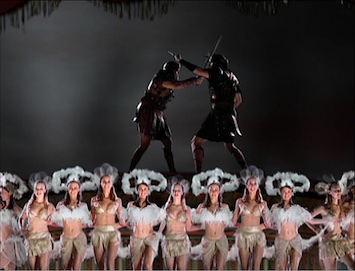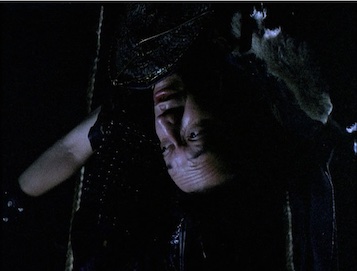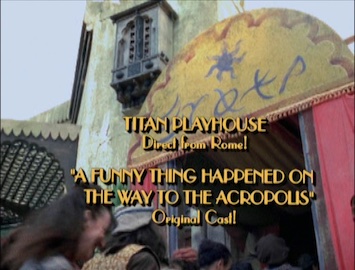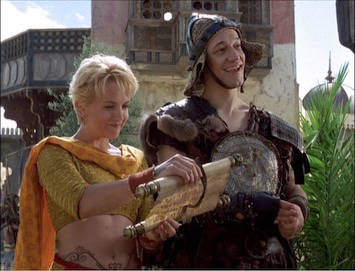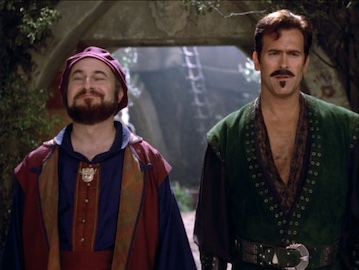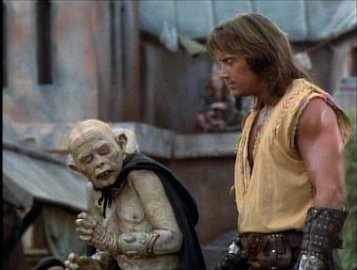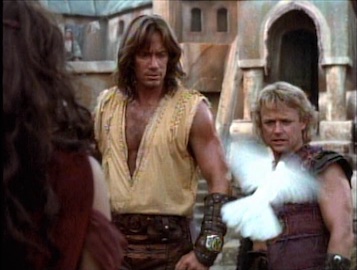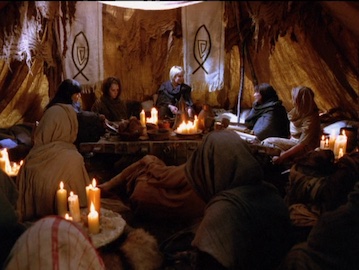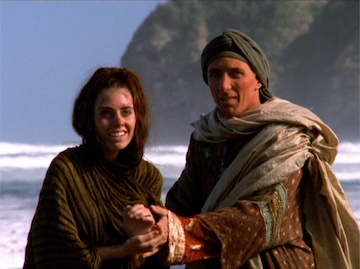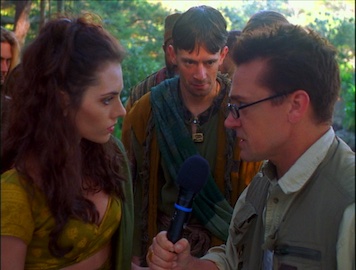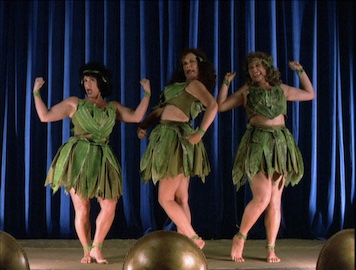
Something I had to keep in mind about canon for my project is that I had 3 different kinds to juggle. Although my story is a #Xena episode, it actually draws upon 3 of the “RenPic Cinematic Universe” shows: Xena, #HerculesTheLegendaryJourneys , & #YoungHercules.
In my view, the 3 comprise one complete story, but they approach it in 3 different ways. In a Xena ep, Xena is the source: she caused the problem, she solves it, & along the way, she’s the source of all important info about it. Even when she has no way of knowing the info, she delivers it to us. The result is a highly unified story, which makes it the most sophisticated of the 3 shows. It’s like the “Oedipus Rex” of Greek tragedies: the perfect illustration of a hero that encapsulates all the story’s choices & destinies in one.
Even when Xena isn’t present, she’s the subject of the ep. Hercules is very different: the hero is more of a mediator, a peacemaker, & we see more of the world beyond him, because he’s just one aspect of it. When he’s not in an ep, life goes on.
In a way, he’s actually a good model for Eve the Messenger, & in fact, next week I’ll talk about how Eve’s roots may actually be on Hercules. Young Hercules is more limited in scope. It’s set in ancient Greece’s equivalent of a high school, a military academy, complete with “malt shop,” actually, an unusually cheery, sunlit tavern nearby, frequented by the younger crowd. Most of the stories focus on learning how to take on responsibility, & retaining one’s values as they face a morally complex world.
One of the leads has to take over his father’s kingdom at an early age, & it’s clearly not an envious task to wear the crown. There’s virtually no romance at all. There’s a female student, an Amazon, but she’s just one of the guys. Is a serious look at becoming an adult.
Despite that, Young Hercules has a lot of fun with concepts that appear in Xena & Hercules, & I found it a good source of how RenPic did world building in their version of Ancient Greece. I also found it inspiring when trying to imagine how Livia spent her younger years, since this would’ve been similar to her environment, I believe. Not to mention, the Elijian youth movement, who would be similar in spirit to YH’s cast.
Later in Hercules, they revisit the academy of his youth, to find it’s become a very different place, expanded in scope & much more ruthless & corrupt. This is more how I imagine Livia’s upbringing, & given the timing of its appearance on Hercules, it would’ve coincided with the Xena staff’s preplanning for her arc. So all 3 shows were helpful to me in expanding Eve/Livia’s character & world in a way that feels authentic to me.
Why not just stick with Xena’s world? Because of the highly centralized nature of its stories, there isn’t much breathing room for a third main character, & it’s hard to conceive how that would work. As it is, I think the writers pushed it as far as they could go with her; any further, & the show could’ve felt unbalanced. I’ll talk more next week about the challenges of her character, & I’m impressed they got as far as they did.
I’ll talk more about canon as I go through the project, but one more word for now. The Rosetta Stone of Xena canon, imo, is a show that ran concurrently during its 1st season: American Gothic. It’s completely unrelated, but because it ran 1 season, the gothic concepts it introduced were picked up by Xena. The most important one, for my purposes, is the Rosemary’s Baby-inspired arc. The Child of Destiny motif is big in Xena, throughout its run, & finds it biggest expression in Eve herself. This was something I kept in mind for this story:
She’s not merely a personality, but has real thematic momentum behind her, & that impacted how I expanded on her backstory. I’ll close with another video that inspired the look of this project. There’s a lot of dance-related videos I looked at, & this one helps connect several storylines.
The opening dance sequence in the musical Hair shows tai-chi-inspired dance in NY’s Central Park, as witnessed by a recruit bound for Vietnam. Here it illustrates their freedom and uninhibitedness, & it inspired how I portrayed the Elijian youth, but strangely enough, it also inspired how I imagined teen Livia danced. Her military discipline would’ve drawn on the same movements, in a very different context. To me this illustrates the idea of synchronicity: how lives & events seemingly headed for tragic collision can suddenly find themselves aligned, as if by the planets & stars themselves.
